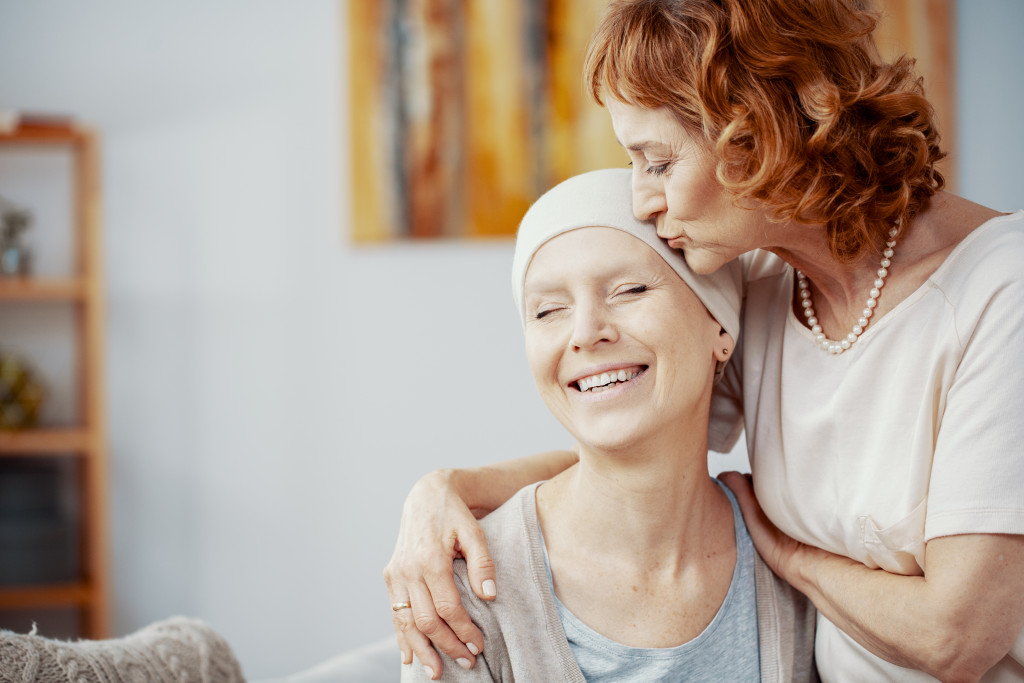Disclaimer: The Lifestyle Elf. This site provides fashion and lifestyle content for informational purposes only.
- Caring for a cancer-stricken family member is emotionally and physically demanding; resilience helps caregivers navigate this difficult road.
- Building a support network, practicing self-care, and communicating with empathy can help maintain resilience in caregiving.
- Home services such as medical care, personal care, and household chores provide much-needed relief and comfort.
- Creating a positive and supportive environment, celebrating milestones, and fostering communication are essential for resilient family caregiving.
- By equipping themselves with the necessary resources and cultivating resilience, caregivers can provide for their loved ones.
When a loved one is diagnosed with cancer, it can feel as though your world has been turned upside down. Suddenly, you’re thrust into the role of caregiver, responsible for providing support, love, and hope to the person you care most about. And while it’s an incredibly difficult road, it can be traversed with resilience.
Resilience is a crucial part of caregiving, allowing you to withstand the emotional and physical demands.
Caring for a cancer-stricken family member is one of the most challenging experiences a person can go through. The stress can be overwhelming, leading to burnout, anxiety, and, in some cases, depression.
This is why resilience is so critical in caregiving. It allows you to face challenges head-on, adapt to changes, and bounce back when faced with difficulties.
Resilience also helps you be a more effective caregiver. By maintaining a positive outlook, practicing self-care, and building a support network, you’ll be better equipped to provide your loved one with the care and support they need.
Holding Hands, Holding Hope: Strategies for Resilient Caregiving
Here are three strategies for maintaining resilience while caring for a cancer-stricken family member:
Building a Supportive Network
There is no shame in asking for help. Build a support network of friends, family, and healthcare professionals to help you during this trying time. Join a support group, talk to a therapist, and connect with other caregivers.
Being surrounded by people who understand what you’re going through can make a tremendous difference.
Practicing Self-Care
Self-care is crucial for caregivers. It’s easy to lose sight of your well-being when caring for someone else. However, making time to exercise, eat well, get enough sleep, and engage in activities you enjoy can help you maintain a positive outlook and better care for your loved one.
Communication and Empathy
Communication is vital when caring for a cancer-stricken family member. It’s essential to listen actively, maintain open lines of communication, and put yourself in their shoes.
Empathy is the ability to understand and share the feelings of another. Understanding your loved one’s feelings and perspective can help you provide them with better care and support.

Home Services for Enhanced Care
Caring for a loved one with cancer can be physically, emotionally, and financially taxing. Home services for cancer patients provide much-needed relief, comfort, and support for both the patient and the family members. These dedicated home services come in different forms, from medical care to household chores such as cooking, cleaning, and laundry.
By providing these essential services, caregivers have the time and energy to provide emotional support, being present for their loved ones as they battle cancer. Different home services catered to the needs of cancer-stricken patients.
Here are some home services to know:
Home Healthcare Services
Home healthcare services are designed to care for patients in the comfort of their homes after being hospitalized. Medical professionals, such as nurses, therapists, and physicians, provide home health care services.
Medical professionals can manage medication and treatment, monitor vital signs, and administer IVs. Home healthcare is ideal for those requiring long-term care, as it provides a familiar environment during recovery.
Personal Care Services
Personal care services provide non-medical assistance to cancer patients’ daily living activities. Caregivers can help with simple tasks such as bathing, grooming, dressing, meal assistance, and transportation.
These services also aim to enable patients to live comfortably in their homes without worrying about daily tasks that can become challenging for them.
Household and Chore Assistance
Due to the physical limitations of cancer-stricken patients, household and chore assistance help provide adequate care for them. These services include meal preparation, grocery shopping, laundry, cleaning, and running errands.
Household and chore assistance is essential in providing patients with a clean and safe environment and preserving their nutritional and medical needs.
Fostering Resilience in the Family
Fostering resilience in a family is essential in coping with a cancer-stricken family member. A cancer diagnosis can be challenging for families; feeling overwhelmed, scared, and uncertain is normal.
Resilience in the family can be established by creating a supportive and positive environment, celebrating victories, and fostering communication.
Creating a Supportive and Positive Environment
Creating a positive and supportive environment for the cancer-stricken patient and the family members can make a huge difference. Always ensure the patient and family’s emotional, physical, social, and spiritual needs are met. Encourage open communication, and be a good listener.
Regularly schedule family meetings to exchange information, provide updates, and explore opportunities for support.
Celebrating Victories and Milestones
When a cancer-stricken family member hits a milestone—a clear scan, a favorable report from the doctor—take the time to celebrate with them. Celebrating milestones provides positive reinforcement during challenging moments and helps foster family resilience. Merrymakings need not be grand; they can be simple and thoughtful.
As a caregiver for a cancer-stricken family member, you’ll face numerous challenges and obstacles. However, by practicing resilience, building a support network, practicing self-care, and communicating empathetically with your loved one, you’ll be better equipped to handle the journey gracefully.
Remember, you don’t have to do it alone. There are resources and support available to help you along the way.

